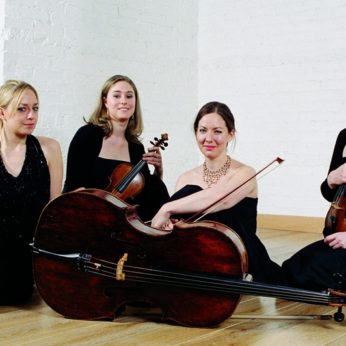Schubert is said to have written his first string quartets when he was only ten, and he was barely seventeen when he wrote the quartet we hear today. The previous nine quartets had all been written for the family quartet made up of his two older violin-playing brothers and his cellist father, while Schubert himself played viola. But the B-flat one was intended for a wider circle of players, where he did not feel obliged to take into account his father’s limited talents as a cellist. The youthful composer claimed to have written the first movement in four and half hours.
This movement unveils remarkable riches. There is an ambivalent but leisurely opening in the first violin later taken over by the viola. This is broken into pairs of loud chords separated by silence leading to music of increasing ferocity darkened by the haunted atmosphere of Erlkönig. There is a powerful imagination at work here that gives a clear foretaste of the later quartets and their exploration of the dark recesses of the composer’s soul, counter-balanced here it must be said by a cheerful, song-like theme.
The G minor Andante sostenuto is highly dramatic despite moments when Schubert’s most lyrical voice takes over. Moreover it explores unusual key relationships and is capped by a remarkable coda that recalls Haydn’s Chaos Prelude from The Creation. The minuet is all smiles, sounding for all the world like the youthful Mozart and none the worse for that; the two-part trio has the trademark Viennese lilt. The finale shows its composer has fully assimilated the soul of the string quartet; the music dances light and fleet, now with brilliant repartee. Pure delight.
